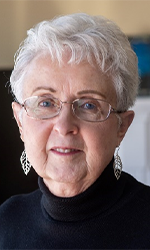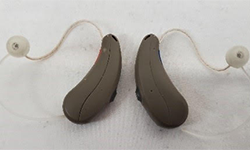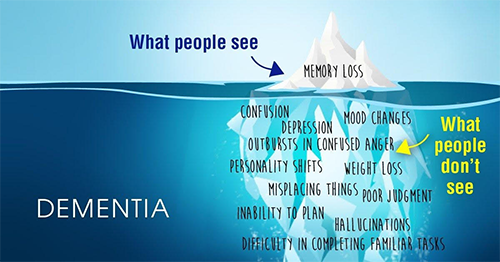False Assumptions about Gray Hair, Hearing Aids and Memory
Gray Hair

 This is me in February of 2022. My hair isits natural color. Nothing has been touched up except my almost non-existent eyebrows. How old would you guess I am?* Is the color of my hair affecting what you think about my age?
This is me in February of 2022. My hair isits natural color. Nothing has been touched up except my almost non-existent eyebrows. How old would you guess I am?* Is the color of my hair affecting what you think about my age?
This is me when I was coloring my hair.How many years do you think passed between when the photos were taken?**It’s true that the lighting isn’t the same and could make some difference in your guess.What if you just saw me from the back?
I got some very interesting reactions from the women at church. Some wondered if I was trying to send a message that this is what all of them should do. Some said they liked it and were trying to get up the nerve to stop coloring their own hair. Others said they were going to color their hair until the day they died. I tried to assure them that this was a personal choice and not a judgment. I like being low maintenance in all aspects of my appearance.
I noticed a different type of reaction in people who didn’t know me. At Smith’s, I was asked by non-employees if I needed help loading the groceries into my car. I was directed to an elevator more often than to the stairs. Last week in the busy Phoenix airport, the minute I approached the kiosk where I was to print my luggage tag, an employee was by my side offering to print it for me. You get the picture.
Hearing Aids
 These are my hearing aids. I’m wearing them in the first photo. My husband and I both had our hearing checked in January of 2019. We went in mostly because I thought his not responding to what I said had become more than “just a guy thing.” I also noticed that I was turning up the volume on the television.
These are my hearing aids. I’m wearing them in the first photo. My husband and I both had our hearing checked in January of 2019. We went in mostly because I thought his not responding to what I said had become more than “just a guy thing.” I also noticed that I was turning up the volume on the television.
We were both diagnosed with hearing just under the normal range. I decided we should give hearing aids a try. My sister, two years younger, had worn them for about four years. She, a nurse, had learned that the sooner one uses them, the longer the brain is able to process sound. If we wait until we are very hard of hearing, which a lot of people do, they can’t help us nearly as much. It took a while to get used to them, but I did notice that I could lower the volume on the TV. I didn’t care how I looked with them on. After all, I’d been wearing glasses for years to correct my vision. Most people didn’t even notice that I wore them. Offers of help or comments about my age weren’t any more frequent.
However, hearing aids could not correct my problem with my husband. Having been diagnosed with Alzheimer’s disease about 3 years earlier, they simply confirmed the fact that his brain couldn’t process more than one thought at a time. It wasn’t a matter of hearingat all. He continued to be sure I hadn’t said anything more than one sentence at most, which leads to my third, often-false assumption.
Memory
 For several years, most people were surprised to learn that my husband had Alzheimer’s
dementia. What they expected to see was a loss of short-term memory. Only those closest
to him had any idea. Even this illustration doesn’t show all of the often overlooked
symptoms of the disease.
For several years, most people were surprised to learn that my husband had Alzheimer’s
dementia. What they expected to see was a loss of short-term memory. Only those closest
to him had any idea. Even this illustration doesn’t show all of the often overlooked
symptoms of the disease.
Some of the first things I noticed were:
- His ability to drive safely decreased. This change in behavior is now being used in studies on how to predict the onset of Alzheimer’s.
- He lost the ability to follow instructions, either oral or written. I now know that instructions can be more easily remembered and followed when set to music.
- He could no longer cook a meal consisting of more than one thing. That took planning, which he had trouble doing when it came to most activities that required it.
- Walking was no longer automatic. He had to use a lot of “brain energy” to get his legs to take big steps when they only wanted to shuffle. A decrease in balance didn’t help.
- When emptying the dishwasher, he often put things where I didn’t expect to find them.
Don't Assume
As people age, we often make false assumptions based on the color of their hair, what we think is an inability to hear, or their diagnosis of a certain neurological condition. Even my PCP who specializes in caring for people over 65 assumed that I would not be able to send her a message via My Chart on my computer, because “Many of my patients can’t even use a smart phone.” Most older people are happy when others want to talk to them and learn more about them. Don’t just assume. Ask.
* I’m 78
** 6 years (age 72)
